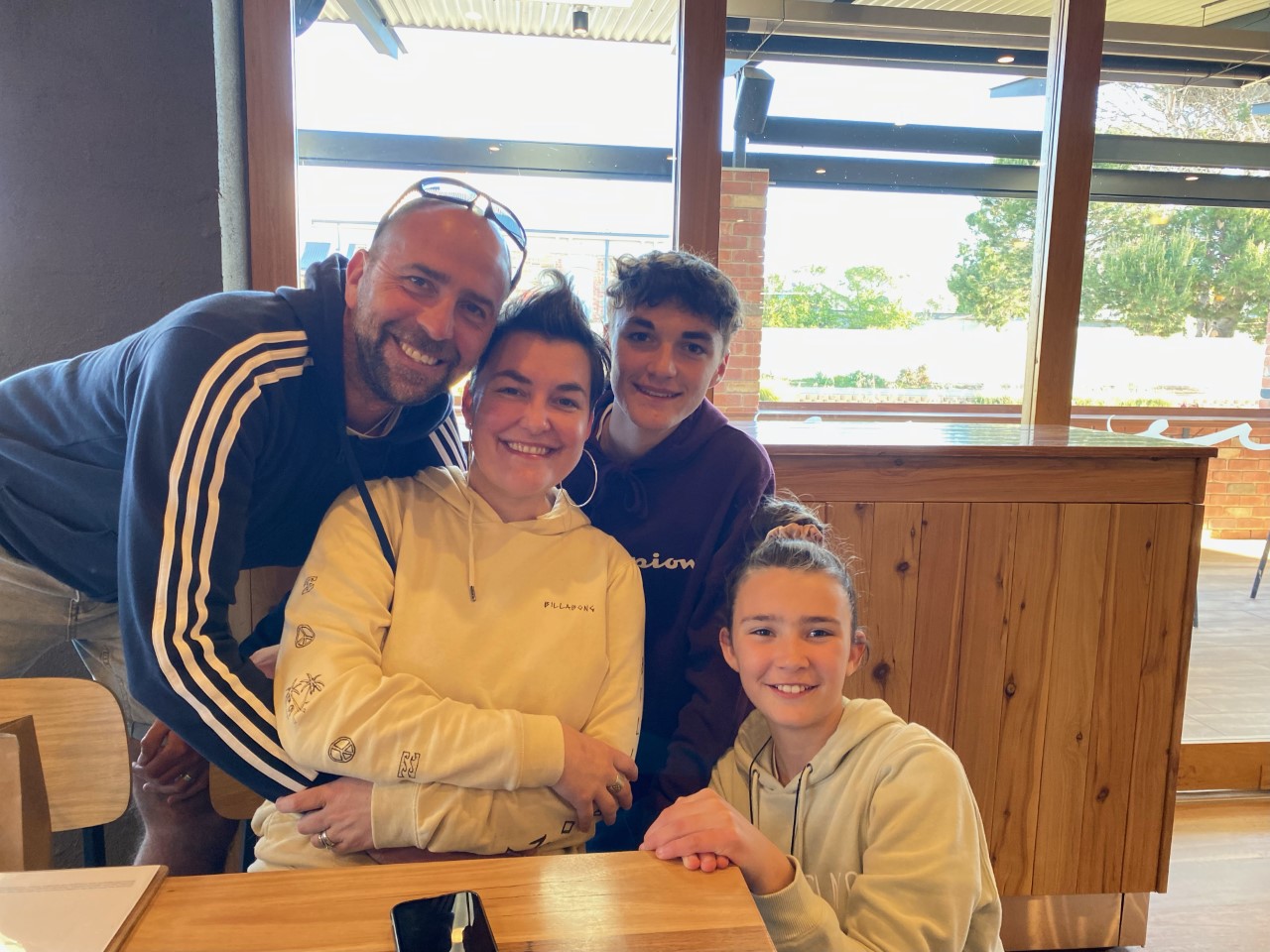Charlie’s blood cancer went undiagnosed for a decade
For Aldinga Beach woman Charlie Nicholson, national standards for blood cancer diagnosis could have made a crucial difference to the progression of her illness.

Back in 2011, Charlie visited her local GP for a general check-up. At the time, she was given the all-clear – only now, after diagnoses of polycythemia vera (PV) and myelofibrosis (both types of blood cancer), has she discovered her blood test results were abnormal even then.
“My current haematologist has looked at those results and seen my numbers were already amiss,” says Charlie. “Had I been referred then, I would’ve probably been diagnosed with PV and treated. Instead it sat in me, undiagnosed, for a decade.”
Mix-ups and missed opportunities
Exhibiting no symptoms and busy raising two young children, Charlie continued to live a full life on the outskirts of Adelaide. Returning to the GP three years ago with gynaecological issues, her blood tests again delivered abnormal results – anomalies that were assumed to be a lab error.
With nothing to tell her otherwise, Charlie put symptoms she was now experiencing – including extreme fatigue, intense headaches and hot flushes – down to a combination of perimenopause and stress.
After a fall at work resulted in a haematoma from hip to knee, she headed to the emergency room, only to be sent home without a blood test. When a resulting elbow injury blew up all the way to her armpit, however, a GP was alarmed enough to order complete bloodwork.
The resulting “pretty chaotic blood picture”, as Charlie puts it, led to a referral for an urgent hospital appointment – a referral that was then lost in the system.
Advocating for her diagnosis
Over the following weeks, Charlie began to actively advocate for herself as she struggled to receive answers. Eventually contacting a private haematologist, she began a process that resulted first in a diagnosis of polycythemia vera – with a life expectancy of less than 20 years – and then, soon after, a confirmed diagnosis of post-polycythemia vera myelofibrosis – an outcome that brings with it a prognosis of five years survival at best.
“The theory is because the PV has been in me for a decade but wasn’t treated,” says Charlie, “it severely scarred my bone marrow and led to myelofibrosis. Although being told I had PV was a big shock, I had got my head round the fact it wasn’t a death sentence. Being told I had myelofibrosis changed that significantly. I’m 44, with a 12-year-old daughter and a 17-year-old son. Never in my life had I planned to not watch them grow up.”
A renewed appreciation for life
Currently taking part in a clinical trial that combines two palliative drugs, Charlie is hoping to become a suitable candidate for a stem-cell transplant. In the meantime, she’s focused on appreciating every moment of life with her husband and children.
“Blood cancer has changed me as a person,” she says. “My coffee smells much nicer now, and the sky seems bluer. When you might not have long to live, you appreciate it all so much more. I’m making memories with the kids – being more intentional and not taking people for granted.”
The Leukaemia Foundation’s Set the Standard campaign is calling for a new set of national standards so no matter who someone is or where they live, they can get the best possible blood cancer treatment and care.
For Charlie, the campaign message is one that resonates. “My story could have looked quite different had I been diagnosed sooner,” she says. “They couldn’t have changed the end of the journey, but treatment could have slowed it down.”
Coping with a deep sadness
Now working through a bucket list that includes learning to blow glass, mastering a potter’s wheel and visiting Uluru, Charlie retains the life-long sense of positivity and determination that drives her to make the most of every day.
“My children have grieved and been angry,” she says. “They ask me, ‘Why you? You’re a good person, you help people.’ And I say, ‘Why not me?’”
“I’m surprisingly calm and peaceful with it all, and the support and unconditional love of my husband Johnny lifts me through the hard days. Obviously, I have my dark moments and am filled with a deep sadness, but I’m a lot stronger than I gave myself credit for. I’ve found a resilience I didn’t even know I had.”
Add your name to the campaign and help people like Charlie
Last updated on May 27th, 2022
Developed by the Leukaemia Foundation in consultation with people living with a blood cancer, Leukaemia Foundation support staff, haematology nursing staff and/or Australian clinical haematologists. This content is provided for information purposes only and we urge you to always seek advice from a registered health care professional for diagnosis, treatment and answers to your medical questions, including the suitability of a particular therapy, service, product or treatment in your circumstances. The Leukaemia Foundation shall not bear any liability for any person relying on the materials contained on this website.